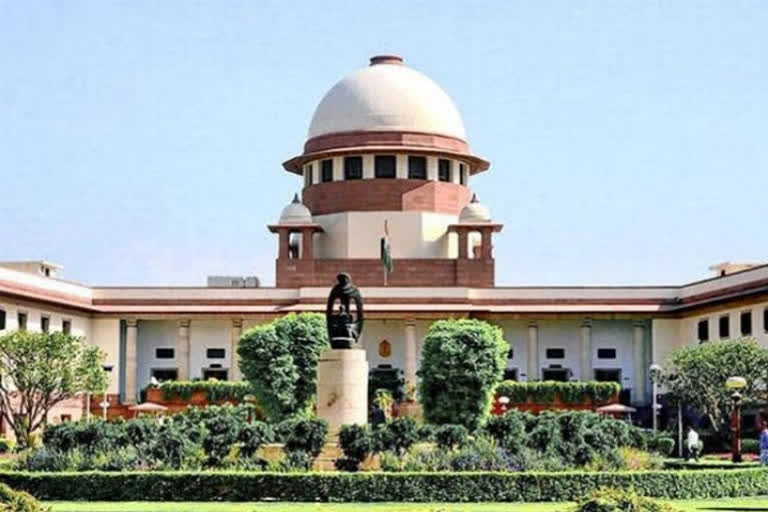New Delhi: The Supreme Court on Monday reserved its order on a batch of petitions seeking restoration of 4G internet services in Jammu and Kashmir claiming the 2G service available in the Union Territory is not sufficient for education and business purposes amid the ongoing coronavirus-induced lockdown.
The bench led by Justice NV Ramana reserved the order after listening to the arguments of the petitioner and the government for around 3 hours.
The bench said that they will consider all the issues for the order and do not require any additional materials as of now.
The petitioners represented by Advocate Hufeza Ahmedi and Salman Khurshid, argued in the court detailing the hardships faced by the students and doctors during lockdown due to the non-availability of 4G services.
Ahmedi contended that the doctors can not access information about corona treatment which is extremely necessary and 75 doctors have also made a representation flagging the same concerns.
"Right to access doctors is inherent under article 21. Deprivation of fundamental rights has to be judged in the light of the fact that today you have a pandemic and you have restricted right of people to access a doctor and of children to access a school," argued Ahmedi.
He also denied the government's claim that 2G is enough for browsing and said that it takes 50% more time to load in 2G when compared to 4G and due to the time outs video conferencing services perform poorly.
Read: SC dismisses plea of dist judge against swearing-in of K'taka HC judge
Ahmedi cited the government's affidavit which claimed that YouTube video can be downloaded through 2G. Even the Aarogya Setu app is extremely difficult to download using 2G, added Ahmedi.
Further contending he said that there are 1.32 lakh broadband landline connections but more than 1 crore phone/internet connections which means that broadband connections in the UT account for less than 1 per cent of the total internet connections.
Raising the government's affidavit's points that 4G needs to be curbed due to surge in terror activities, the advocate contended that terrorism was more during the 1900s when there was no internet and there is no study that terror activities are directly linked to the internet.
In fact, the government's data also doesn't say that terror activities have increased due to 4G, said Ahmedi.
Salman Khurshid, appearing for the association of schools, said that the private schools are under government's directions to provide video conference classes.
He also raised the issue that although the government claims that there has been a weekly review of the internet situation as per the SC order, but none of the information is available to the public.
"The government's affidavit says that 1 hour of classes via Television is being given. How can we complete the full syllabus with one-hour classes per day?," questioned Khurshid.
Read: SC directs Bombay HC to decide over burial of COVID-infected bodies
Attorney General KK Venugopal, dismissing all the arguments of the petitioners, said that pleas have to be examined against the larger public interest of national security which is paramount and those tasked with protecting national security must be the sole judges.
"It is about the protection of the lives of the entirety of the population of J&K and not just patients, terrorists are being pushed into the country," said Venugopal.
He further said that such matters can not be made the subject of evidence before the court of law, discussed in public, as the sovereignty of India is seriously affected due to terrorist activities.
"Matters of policy can not be interfered with by the court. It must be left to the government," added Attorney General.
The government also said that the landlines are traceable and can not be misused for any anti-national activities whereas mobile phones are easily used and can be thrown away.
It also did not give a specific date to the apex court om being asked about when the restrictions would be lifted from UT.
Khurshid suggested blocking internet sites which are problematic and Ahmedi said the internet can be opened on a trial basis to see how it works.
(With inputs from ANI)
Also Read: COVID-19: Restrictions to continue in Srinagar till May 20



